Scottish referendum: What now for the key players?
- Published
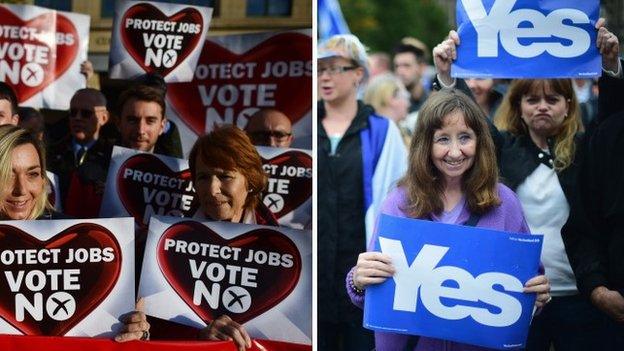
The campaign for Scottish independence has resulted in a "No" vote, after a campaign which has electrified the country's politics and saw record voting turnouts.
But for many of the key players in the campaigns, it's now time to move on to new horizons. So what might they do?
Alex Salmond
First Minister, Alex Salmond: "For me as leader my time is nearly over"
Regarded as one of the most talented politicians of his generation, Alex Salmond took the SNP to the brink of achieving its dream of Scottish independence.
But following the referendum "No" vote, he announced his intention to stand down as first minister of Scotland and leader of the Scottish National Party.
Despite the outcome of the vote on Scotland's future, Mr Salmond has secured his place in history, having taken the SNP into government in 2007 and winning a second term four years later, following a landslide victory.
The 59-year-old - after a spending a total of 20 years leading his party - is doubtless looking forward to some free time, but he intends to remain in public life. Watch this space.
Nicola Sturgeon
Nicola Sturgeon is seen as a clear favourite to replace Alex Salmond as Robert Pigott reports.
Also regarded as an astute political operator, Nicola Sturgeon is the only real name in the frame to become the next SNP leader and first minister of Scotland.
Elected SNP deputy leader on a joint ticket with Mr Salmond, the two have formed a formidable working relationship, with Ms Sturgeon coming to regard her boss as a friend and mentor.
Ms Sturgeon says there would be "no greater privilege" than seeking to lead the party she joined at the age of 16, but says she wants to first have some rest after a long campaign and focus on Mr Salmond's achievements.
We're pretty much looking at Scotland's next first minister though.
The two Blairs
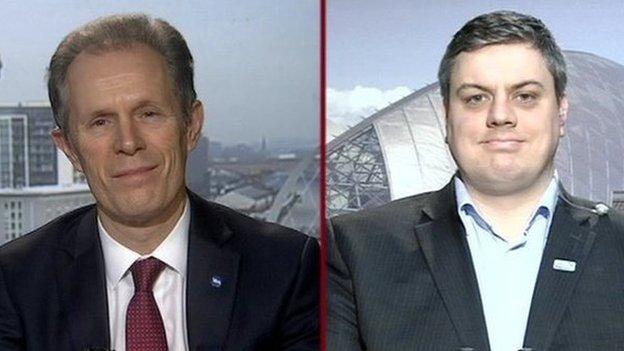
The bosses of the two campaigns for and against independence became permanent fixtures on the airwaves during this campaign.
On one side was Yes Scotland chief executive Blair Jenkins - a former BBC Scotland head of news - and on the other Blair McDougall, campaign director for Better Together.
Both good-natured chaps and each deeply committed to their cause, Mr Jenkins and Mr McDougall are now looking forward to a holiday (not together) before making their next move.
They have both expressed a desire to continue in public life.
Gordon Brown
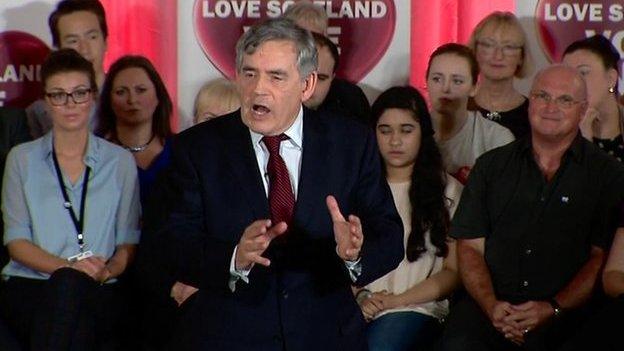
The former prime minister retreated from full-on public life for a while after Labour lost the last UK election, even when the Better Together campaign was launched.
As time went on, though, he got more involved and, as it looked like momentum was moving in the direction of the pro-independence camp, stepped in with a timetable on delivering new powers to the Scottish Parliament, which won the backing of his political rivals.
And, the day before voters went to the polls, Mr Brown delivered what was regarded by many observers as a barnstorming speech in defence of the Union which may have helped seal the deal for Better Together.
Could this now pave the way for a more visible presence on the public stage in future?
Alistair Darling
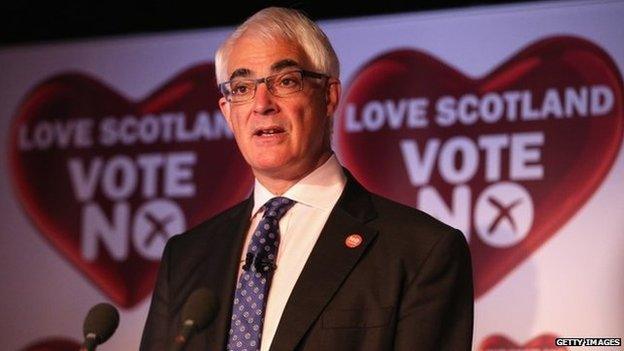
As if he didn't have a tough enough time as Chancellor under Gordon Brown during the global crash, Mr Darling then took on the task of leading the campaign for the Union.
Although Alex Salmond repeatedly challenged David Cameron to a debate on Scotland's future, it was Mr Darling who faced the first minister in two televised encounters.
Instant polling suggested Mr Darling came out on top in the first debate after he challenged the first minister over currency, but he seemed more nervous in the second debate, when polls suggested viewers had found Mr Salmond more convincing.
However, it was the Better Together leader who addressed jubilant supporters on the morning of 19 September, following a majority of referendum votes for "No".
Now the long campaign is over, Mr Darling will continue as Labour MP for Edinburgh South West, though whether he opts for another front-line political role remains to be seen.
David Cameron
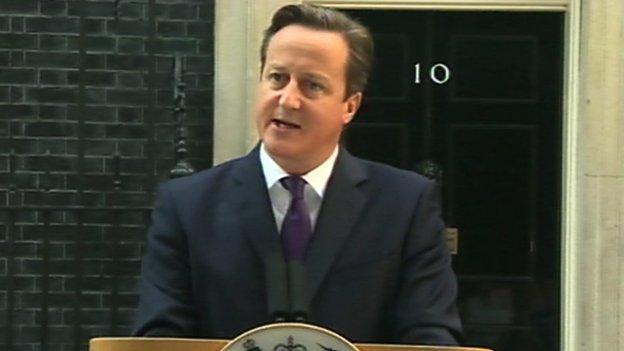
Having the dubious honour of being the Conservative prime minister who oversaw the break-up of the United Kingdom just wasn't an option for David Cameron.
He began the campaign by telling voters in Scotland that, under independence, they couldn't keep the pound as they knew it, as well as other things.
But that gave way to his heartfelt pleas to Scotland not to leave the rest of the UK, saying he'd be "heartbroken" if this ever happened.
Given the referendum "No" vote, Mr Cameron, now charged with delivering the extra devolved powers he promised, is safe - at least until next year's UK election.
Surely, this time round, one of his priorities will be winning more than one Westminster seat in Scotland.
Alistair Carmichael
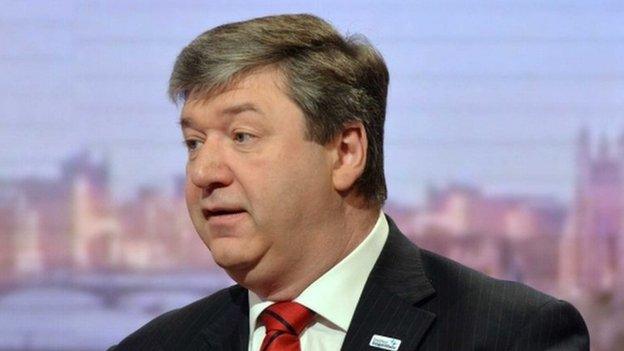
The Liberal Democrat MP for Orkney and Shetland replaced fellow Lib Dem Michael Moore as Secretary of State for Scotland in October 2013.
At the time it was understood that the UK coalition government wanted a more combative figure than the mild-mannered Mr Moore to fight for the Union.
More recently, Mr Carmichael indicated he could join Scotland's negotiating team for talks on independence if there were a "Yes" vote - remarks that were seized on by Alex Salmond.
Days before the vote, the Scottish secretary said he believed the majority of people in Scotland would rather vote for greater powers than take on the risk of full independence.
With his party leader, Nick Clegg, calling for "wholesale top-to-toe constitutional reform" there could be a role for Mr Carmichael in delivering those powers.